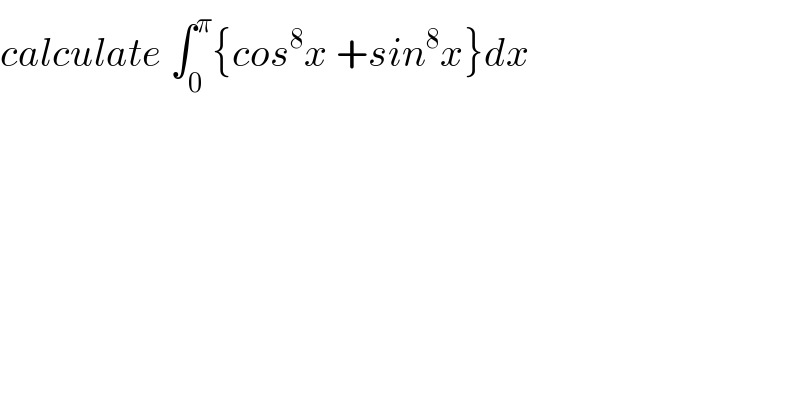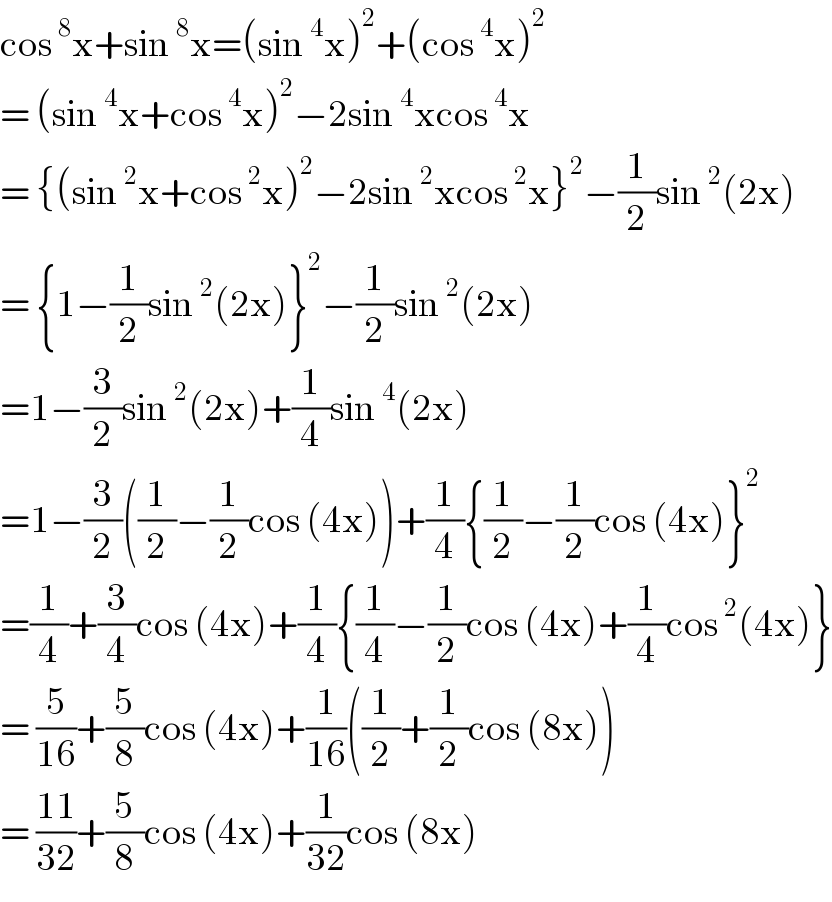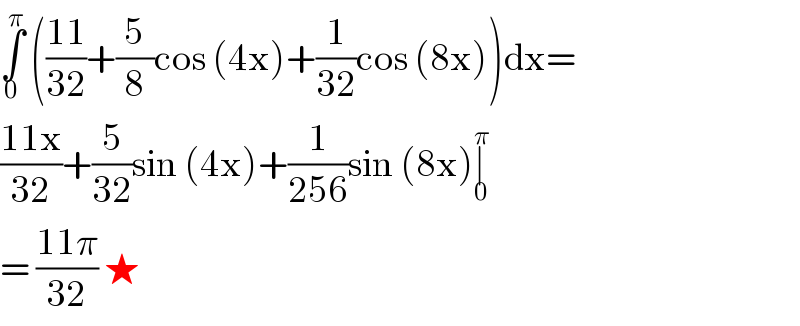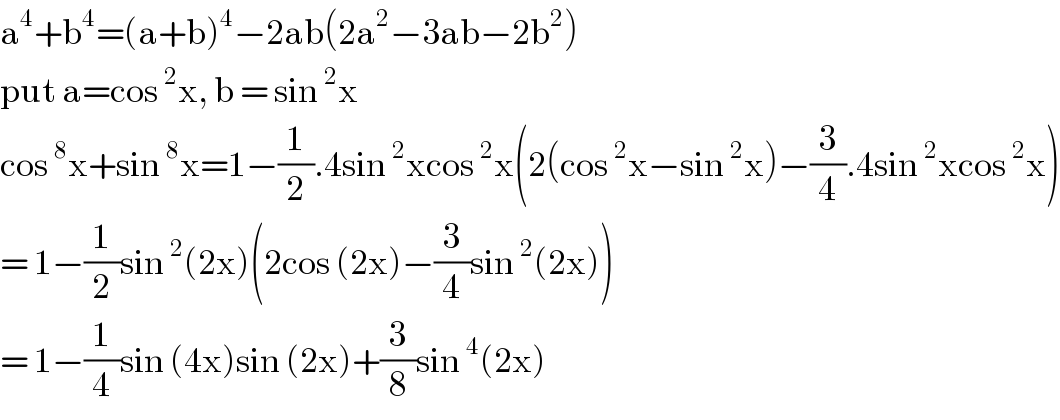
Question and Answers Forum
Question Number 79763 by mathmax by abdo last updated on 28/Jan/20

Commented by john santu last updated on 28/Jan/20

Commented by john santu last updated on 28/Jan/20

Answered by Henri Boucatchou last updated on 28/Jan/20
![we have cos^8 x+sin^8 x=1−(8/8)sin^2 2x =cos^2 2x=(1/4)(e^(i2x) +e^(−i2x) )^2 =(1/4)[(e^(i4x) +e^(−i4x) )+2]=(1/4)(2cos4x+2) ⇒ ∫_0 ^( π) (cos^8 x+sin^8 x)dx=(1/2)[(1/4)sin4x+2x]_0 ^π =(1/2)(2π) =π](Q79771.png)
Commented by john santu last updated on 28/Jan/20

Commented by john santu last updated on 28/Jan/20

